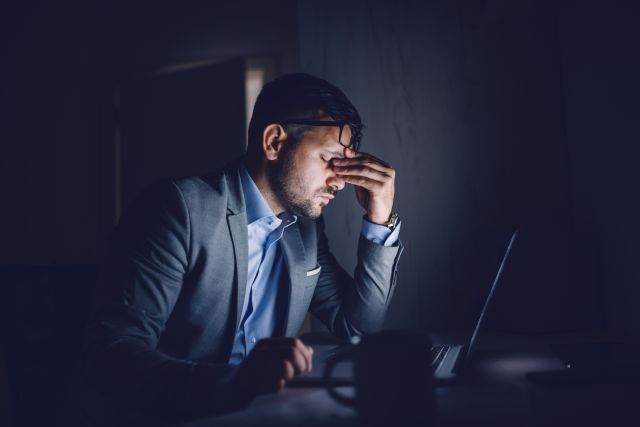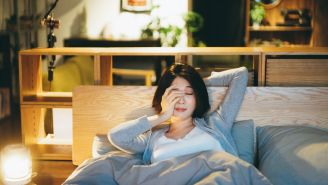When my friend Mike started working the graveyard shift nearly ten years ago, he thought “graveyard” just meant that he should expect a quiet night on the job. Now he takes the term a little more literally. The 56-year-old had a stroke almost a year ago, and an enormous study out of Canada suggests that his work schedule may be part of the reason why.
Mike’s fit and young for his age -- he’s played tennis several times a week for years, and he liked his midnight-to-eight work hours because they let him spend more time with his son. But one day last August he woke up and things weren’t right. “I got out of bed and just fell into the wall,” he remembers. He had no idea what was going on until his wife called and quickly asked if he’d been hit in the mouth. “She could tell something was very, very wrong,” he says, and once he heard his own garbled speech, he could, too. “Once I talked, it was like, Holy crap.”
The study last week was actually an analysis of a bunch of other studies -- 34 of them, in fact, which added up to more than two million people. It found that people who worked non-traditional hours were almost 25% more likely to have a heart attack and 5% more likely to have a stroke than people who worked day jobs or didn’t work at all. The study doesn’t prove that shift work increases your risk of what the experts call vascular “accidents,“ but it points persuasively in that direction. And, after all, there are plenty of reasons to expect a flopped schedule to be bad for you. It messes up your biological rhythms, makes it difficult or impossible to get enough sleep, and gives your work-life balance the kind of hard whack that’s impossible to recover from.
“The human body was not meant to work on a night shift -- that’s the bottom line,” says Sharecare expert Michael Breus, author of Good Night: The Sleep Doctor’s 4_Week Program to Better Sleep and Better Health. “Different people are going to adapt to it in different ways, and some of those adaptations could be harmful.”
The damage isn’t just a private matter, either, Dr. Breus says. “Almost every major disaster that we know of was caused during the latter part of a night-shift, and usually by somebody who was sleep deprived. Chernobyl, the Exxon Valdez -- all those."
None of this is surprising to Mike. Once he started working graveyard, it didn’t take long for him to notice the toll it was taking. “You can kind of tell that you’re off,” he says. “I realized pretty quickly that it wasn’t the best decision I’d ever made, but I couldn’t get out of it.”
Mike works from 3:00 pm to about 10 these days -- not exactly a traditional 9-to-5 job, but in synch enough with society that he gets a good night’s sleep every night. He’s feeling good. In fact, the doctors say that he’s completely recovered from his stroke.
He’s lucky, but he’s far from the only one at risk. A 2005 poll by the National Sleep Foundation found that 14% of Americans do shift work, and plenty more have habits that may interfere with their health just as much as exhausting work hours. “I definitely wasn’t alone on the freeway when I was going to work at 10 at night,” Mike says. He used to wonder where all those people were going, but now he has a message for them: Go to bed.






